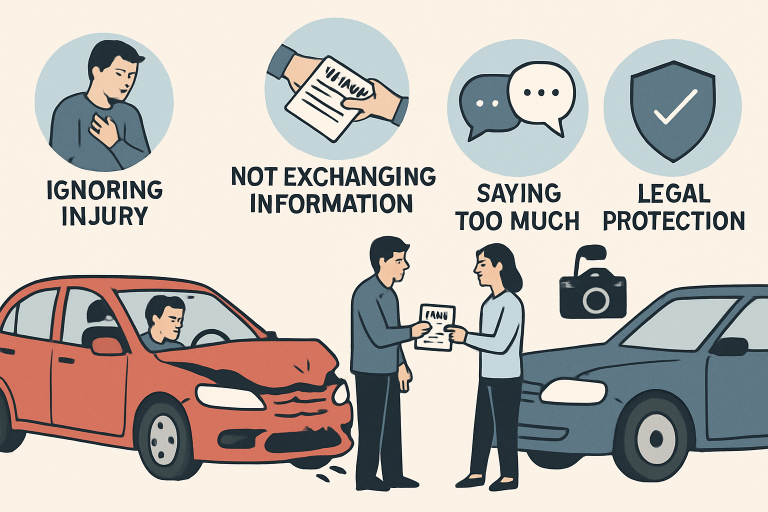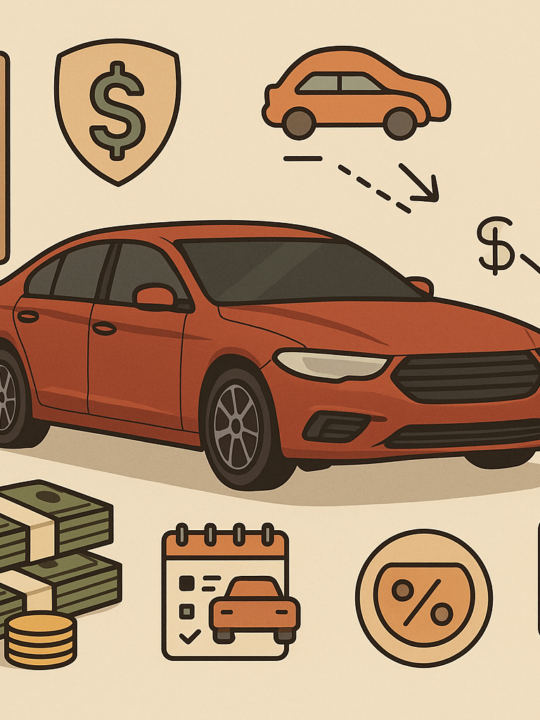Table of Contents
Introduction
Car accidents can cause significant financial strain and legal uncertainty for victims, requiring critical decisions to ensure their compensation. Missteps in the early stages can reduce recovery chances. Working with an experienced Tampa car accident attorney can help avoid costly errors and provide a strong understanding of relevant laws and procedures. Insurance companies can exploit gaps in evidence, medical documentation, or witness testimony to present lower settlements or deny claims. Proper preparation, timely medical care, and communication are crucial for a successful claim. Unintentional mistakes, such as admitting fault, failing to collect evidence, or oversharing on social media, can also weaken a claim. It is essential to stay informed and cautious to protect your future and maximize your recovery.

Immediate Medical Attention
Prompt medical attention after an accident is both a health necessity and a legal safeguard. Injuries may appear minor at first but develop into serious conditions later. Delaying or skipping medical treatment can not only worsen your condition but also provide insurers with ammunition to dispute the validity of your claim. Proper documentation by a medical professional is essential to linking your injuries directly to the accident and demonstrating their severity over time. According to the Centers for Disease Control and Prevention (CDC), seeking medical attention after an accident helps ensure that hidden injuries—such as concussions and internal trauma—are identified early for optimum recovery and documentation.
Admitting Fault
Emotions run high after a collision, which can lead to making well-intended yet damaging statements like “I’m sorry” or admitting blame at the scene. Admitting fault, even casually, gives insurers and opposing parties legal leverage to assign liability to you—regardless of the facts established later. Don’t discuss fault with the other party, witnesses, or insurance representatives. Instead, keep your statements factual and limit conversation until you’ve spoken with your attorney. Let the investigation process determine responsibility based on the evidence available.
Gathering Evidence
Strong claims are built on clear, comprehensive evidence. Immediately after an accident, take as many photos as possible of the scene, your vehicle, other vehicles involved, any skid marks, road conditions, and visible injuries. Collect names and contact information of all witnesses, and request a copy of the police report. These critical details become harder to obtain as time passes and memories fade. Neglecting to gather evidence promptly can make it much more difficult to prove who was at fault and the true extent of your losses, limiting the compensation you may receive.
Settlement Offers
It’s not uncommon for insurance companies to offer quick settlements, especially before the full scope of your injuries is known. While a fast payout can be tempting, accepting a settlement without understanding the long-term consequences can leave you undercompensated for future medical care, lost wages, and other damages. Always have any settlement offer reviewed by an attorney, who can help ensure it is fair and covers all present and future costs. Rushing into an agreement may mean giving up your right to pursue further compensation if your injuries worsen.
Social Media Activity
What you post online following an accident can be used as evidence to challenge your injury claims. Insurance investigators and defense attorneys review social media accounts to find comments, check-ins, or photos that might minimize the seriousness of your injuries or contradict your official statements. For instance, sharing images of yourself engaging in physical activity after the accident may be misinterpreted or exaggerated by insurers to diminish or reject your claim. Consider restricting social media activity or adjusting privacy settings until your case is resolved, a recommendation echoed by experts at Schuler, Weisser, Zoeller, Overbeck & Baxter P.A..
Legal Representation
Attempting to manage your accident claim alone places you at a disadvantage. Insurers have legal teams dedicated to minimizing their liability, making it all the more important to have an advocate on your side. A knowledgeable car accident attorney facilitates every stage—from handling communications to collecting supporting evidence and negotiating with the insurance company. Legal representation is often associated with higher settlements and improved outcomes because attorneys understand both the legal system’s complexities and the tactics insurers use to downplay claims. Even minor mistakes can have major consequences, so don’t underestimate the value of experienced guidance.
Statute of Limitations
Every state sets a specific deadline, known as the statute of limitations, for filing car accident lawsuits. If you miss this deadline, you could lose your right to pursue compensation—no matter how strong your claim. These deadlines can vary depending on the type of injury and the circumstances of the accident. Beginning the legal process early ensures you gather all necessary documentation and evidence before important deadlines pass, giving your case the strongest possible foundation.
Insurance Communication
Communicating directly with an insurance adjuster may seem straightforward, but it’s easy to say something that affects your case inadvertently. Claims adjusters are trained to elicit statements they can use to minimize payouts or deny claims. It’s best to coordinate all communication through your attorney, who can protect your interests and provide the necessary documentation to support your position. This step ensures that your rights are upheld throughout the claims process.
Being aware of these frequent mistakes—and taking steps to avoid them—greatly increases your chances of obtaining the compensation you rightfully deserve after a car accident. With professional guidance and diligent attention to each aspect of your response, you can confidently pursue a successful claim and focus on your recovery.

